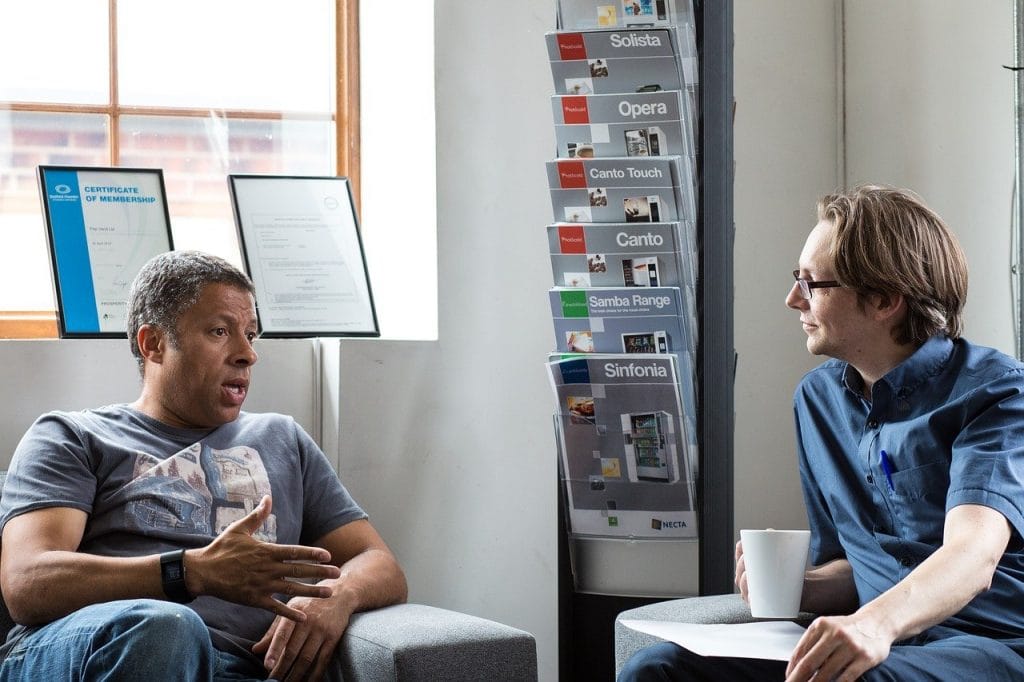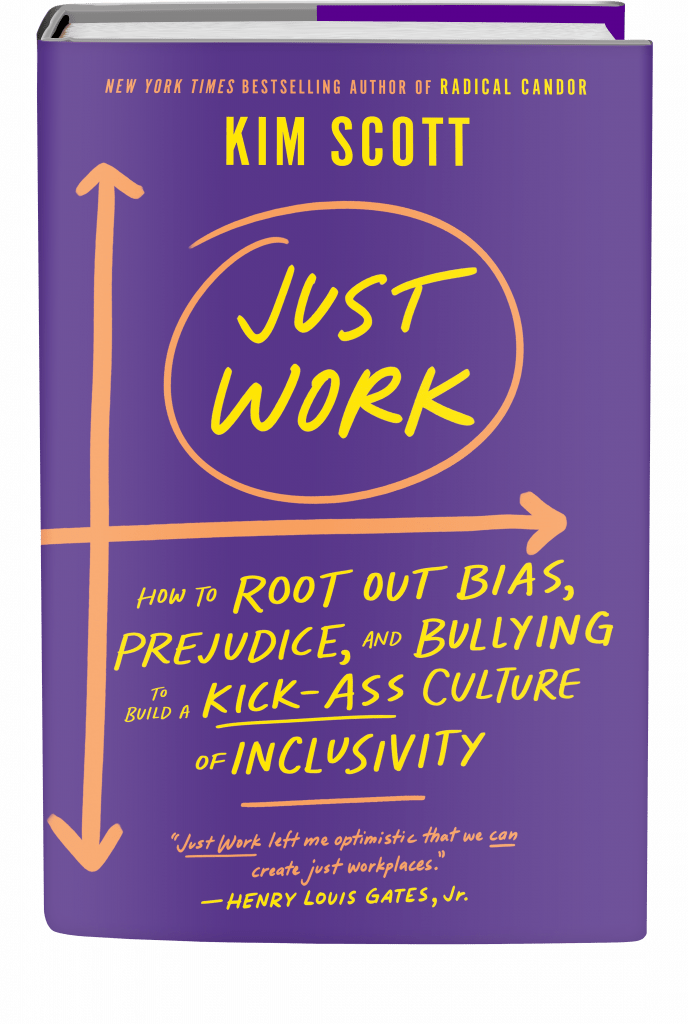Kim Scott is the author of Radical Candor: Be a Kick-Ass Boss Without Losing Your Humanity and Radical…
The Difference Between ‘Fast’ and ‘Meaningful’ Feedback Conversations and Why You Should Be Having Both
The atomic building block of Radical Candor is the two-minute impromptu feedback conversation. And, according to a poll from Gallup, employees who receive frequent, meaningful feedback are not only four times more likely to be engaged than their peers, but they also perform better at work regardless of whether they are remote, in-office or hybrid workers.
Gallup calls this “Fast Feedback.”
“The Fast Feedback approach makes giving feedback easier and more straightforward for managers, who often find the activity intimidating and overwhelming,” Denise McLain and Iseult Morgan write for Gallup.
“When feedback is easy and commonplace, everyone can feel at ease and walk away knowing what and how to improve. And as Fast Feedback becomes part of the norm, a culture of meaningful feedback — the ultimate goal — will emerge.”
“Impromptu feedback is something you can squeeze in between meetings in two minutes or less,” says Radical Candor author and co-founder Kim Scott.
“The best feedback (both praise and criticism) I’ve gotten in my life generally happened in super-quick conversations between meetings or standing waiting for a light to change. Getting and giving impromptu feedback is more like brushing and flossing than getting a root canal. Don’t schedule it. Just ask for it and offer it consistently and immediately when it’s needed, and maybe you won’t ever have to get a root canal.”
Get to the CORE of Giving Fast Feedback
If your organization is remote or you have a hybrid team, you can still have these quick chats. Text or ping the person you have feedback for and ask if they have two minutes for a quick call. And remember, these pings should focus on the good stuff — should be about praise even more often than about criticism. You don’t want these to become dreaded pings of doom.
One of the most important things to remember is to make sure your criticism is kind and clear and your praise is specific and sincere. You can do this by following the Radical Candor CORE model.
Radically Candid praise and criticism both include caring and a challenge. In order to make sure your praise shows the other person what to do more of, and your criticism shows them what to do less of use, the four-step CORE method.
C — Context (Cite the specific situation.)
O — Observation (Describe what was said or done.)
R — Result (What is the most meaningful consequence to you and to them?)
E — nExt stEps (What are the expected next steps?)
For example, CORE praise that includes both caring and a challenge looks like this.
“I asked you to help us be more efficient (context), you went above and beyond by implementing Slack (observation), the team is spending less time on email but more time communicating, which allows us to get more done in less time (result). We’d love for you to explore other tools that can help streamline communication in the office. (nExt stEps).”
When offering critical feedback, it’s crucial to be humble. You may be wrong, and you want the other person to tell you if you are. Communicate your intent to be helpful as clearly as you communicate the feedback itself.
Have the conversation in private and synchronously (ideally in person, but on the phone or over video if that’s not possible) so you can gauge the other person’s reaction. Just like when you’re breaking up with someone, we beg of you, don’t have these conversations in text, over email … and especially not in Slack.
To make sure you’re not criticizing someone’s personality when delivering criticism, you can follow the CORE framework:
Here’s some helpful criticism that Kim Scott received from her boss: “In the meeting just now,” (context), “you said um a lot” (observation). “That hurts your credibility” (result). “I know a great speech coach and the company will pay for it. Would you like an introduction? (nExt stEps).” Download the CORE guide >>
Give CORE Fast Feedback Early and Often
“One of the funniest things about becoming a boss is that it causes an awful lot of people to forget everything they know about how to relate to other people,” Kim says. “If you have a beef with somebody in your personal life, it would never occur to you to wait for a formally scheduled meeting to tell them — you’d just say it right away.”
If you were impressed by something somebody in your personal life did, you wouldn’t wait for a formal performance review to mention it — you’d just say it right away.
Yet, when people become managers, it seems they throw everything they know about how important impromptu communication is to having a productive relationship out the window.
“All too often, bosses forget about ordinary communication and rely instead on all the formal processes, such as 1:1 meetings, annual or bi-annual performance reviews, or employee happiness surveys,” Kim says. “Ironically, these processes were put in place to reinforce ordinary communication. But if you let them substitute for impromptu feedback, they do more harm than good.”
Fast Feedback Focuses On the Future
In addition, Gallup states that feedback should be future-oriented in order to motivate and inspire growth. What’s more, a study published in PLOS ONE notes that future-focused feedback can lead to more successful outcomes.
“When thinking about their past failures, people tend to focus on how things beyond their control could have been better (e.g., they might have had fewer competing responsibilities and more resources),” the study explains.
“In contrast, when thinking about how their performance could be more successful in the future, people focus on features under their control, generating more goal-directed thoughts. Thinking through the steps needed to achieve desired goals makes change in the future feel more feasible. And when success seems feasible, contrasting the past with the future leads people to take more responsibility, initiate actions, engage in effortful striving, and achieve more of their goals, as compared to focusing on past difficulties.”
This helps explain why the nExt stEps part of CORE is so crucial.
What Makes ‘Meaningful Feedback’ Meaningful?
According to Gallup, meaningful feedback conversations have five characteristics.
- Recognition or appreciation for recent work.
- Collaboration and relationships.
- Current goals and priorities at work.
- The length of the conversation — weekly 15-30 minute conversations.
- Employee strengths or the things they do well.
But wait, didn’t I just spend this entire article talking about giving feedback in two-minute impromptu conversations?
Yes — both things can be true. In addition to the fast feedback you’re giving all week long, if you’re a manager, you should be having regular one-on-one meetings with each of your direct reports. This is where those longer conversations can happen.
However, this doesn’t mean your fast feedback conversations can’t also be meaningful feedback conversations. Executive coach Marshall Goldsmith calls this “feedforward.”
At Radical Candor, we believe that all feedback that is kind, clear, specific and sincere is meaningful feedback. After all, the origin story of Radical Candor happened while Kim was standing at a crosswalk waiting for a light to change.
Learn how to have effective 1:1 meetings >>
Remember, giving feedback should be like brushing and flossing — something you do every day so you don’t have to have a root canal.
And just like brushing your teeth, the more you do it the more it becomes second nature. You’ll know you’ve succeeded when you feel weird about not doing it — just as you’d feel weird if you didn’t brush your teeth in the morning or before bed.
*This post was updated July 12, 2023.
————————————————————————————————————————————————————————————–
- Take the Radical Candor quiz >>
- Sign up for our Radical Candor email newsletter >>
- Listen to the Radical Candor podcast >>
- Shop the Radical Candor store >>
- Get Radical Candor coaching and consulting for your team >>
- Get Radical Candor coaching and consulting for your company >>
Need help practicing Radical Candor? Then you need The Feedback Loop (think Groundhog Day meets The Office), a 5-episode workplace comedy series starring David Alan Grier that brings to life Radical Candor’s simple framework for navigating candid conversations.
You’ll get an hour of hilarious content about a team whose feedback fails are costing them business; improv-inspired exercises to teach everyone the skills they need to work better together, and after-episode action plans you can put into practice immediately to up your helpful feedback EQ.
We’re offering Radical Candor readers 10% off the self-paced e-course. Follow this link and enter the promo code FEEDBACK at checkout.






